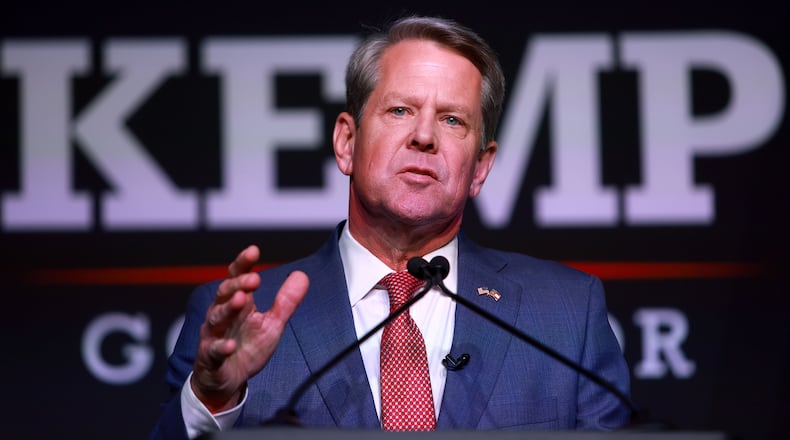Gov. Brian Kemp dealt a blow to President Joe Biden’s plan to make Georgia one of the first states to decide the Democratic presidential nominee in 2024.
Kemp aide Cody Hall said Wednesday that “the governor has no role in this process and does not support the idea.” It was the Republican’s first public criticism of the plan, which doesn’t require his support but could have benefited from his endorsement.
It must, however, earn the approval of Republican Secretary of State Brad Raffensperger, who has stressed that moving Georgia up the schedule would need “buy in from both sides of the aisle.”
The pushback could complicate Biden’s bid to dramatically overhaul the primary calendar. He proposed a new schedule that would cement South Carolina as the nation’s first primary state, followed by New Hampshire and Nevada. Next would come Georgia and Michigan.
Left out of the process would be Iowa, which has held the first-in-the-nation caucuses since the 1970s but was home to a problem-plagued vote in 2020.
The new schedule was backed by intense lobbying from state Democrats, who framed Georgia as a premier battleground state whose diverse population is far more reflective of the nation’s electorate than majority-white Iowa or New Hampshire.
But Democrats can’t unilaterally shuffle the calendar in Georgia. State law gives Raffensperger the authority to realign the schedule, and Biden’s plan triggered a delicate behind-the-scenes effort to win over the Republican and other GOP officials.
Raffensperger didn’t immediately scuttle the idea, but his office staked out several requirements. He wanted both party’s primaries to be held on the same day to avoid straining election workers. And he sought assurances that neither party would lose delegates from an unsanctioned move.
Kemp, for his part, was tightlipped about the proposal until Wednesday – the eve of a procedural deadline set by the Democratic National Committee.
It’s unclear if Kemp’s opposition is a mere setback or a poison pill for the proposal. But the governor, a former secretary of state, has experience in navigating presidential voting schedules: He was a key architect of the regional “SEC primary” in 2016.
About the Author
The Latest
Featured




